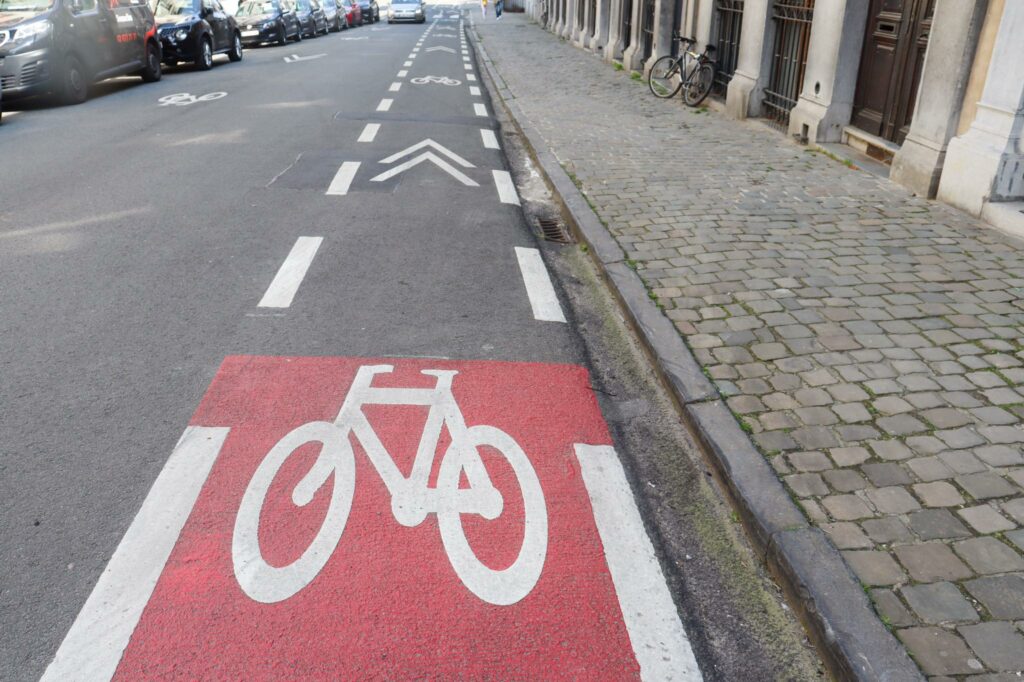By 2040, Flemish people should make more than 30% of trips by bicycle, stated the new cycling policy plan proposed by Flemish Mobility Minister Lydia Peeters on Tuesday. Peeters wants to maintain an annual investment rhythm of at least €300 million to make Flanders more accessible by bicycle.
The Flemish government's previous cycling policy plan dates back to 2016 and is "hopelessly outdated," said Peeters, partly because the speed-pedelec and cargo bike are now much more popular, but also because cycling is much more common.
There is still a large growth margin, she said. In 2020, 14.19% of journeys in Flanders were made by bicycle. By 2040, according to the new 'Bicycle Ambition,' this should become 30%.
Cycling paths should be child-safe
To achieve that, "words like 'murder lane' or 'blind spot accident' have to disappear from the dictionary," Peeters said. Cyclists presently remain vulnerable in traffic. The number of cycling deaths in Flanders increased from 67 in 2021 to 73 in 2022 and the number of injury accidents involving cyclists rose by 13.6% last year.
Therefore, cycling must be made safer. To this end, Peeters adopted the "child standard," which means that an 8-year-old child must be able to travel autonomously by bike to school or extracurricular activities.
In concrete terms, she wants to ban virtually all motorised traffic from school environments and the environments of cultural, sports and youth facilities by 2040. In addition, at least 125 dangerous intersections should be addressed every year to make them as conflict-free as possible.
Related News
- Barely 5% of Flemish cycle paths meet new standards
- Up to six times more cycling accidents than official figures suggest
To make all this possible, investments in cycling infrastructure must be maintained – under Peeters, the annual budget for this was increased to some €300 million. Among other things, these funds should eliminate the "missing links" in cycle highways and on cycle routes.
Some of the plan's objectives by 2040 include every Flemish person having access to a bicycle or shared bicycle, all companies having high-quality parking facilities, parcels delivered by bicycle couriers and more covered bicycle taxis in cities. The plan hopes that by 2040, Flanders "will be the reference for cycling and bicycle use" to other countries.
The plan, however, is ambitious and will not be realised overnight. On top of that, Flanders manages only 8,000 to 9,000 kilometres of the more than 40,000 kilometres of Flemish cycle paths. However, according to Peeters, the fact that the plan was greenlit by the Flemish government does mean that at least the current coalition partners will want to put their shoulders to the wheel in the coming legislatures.

